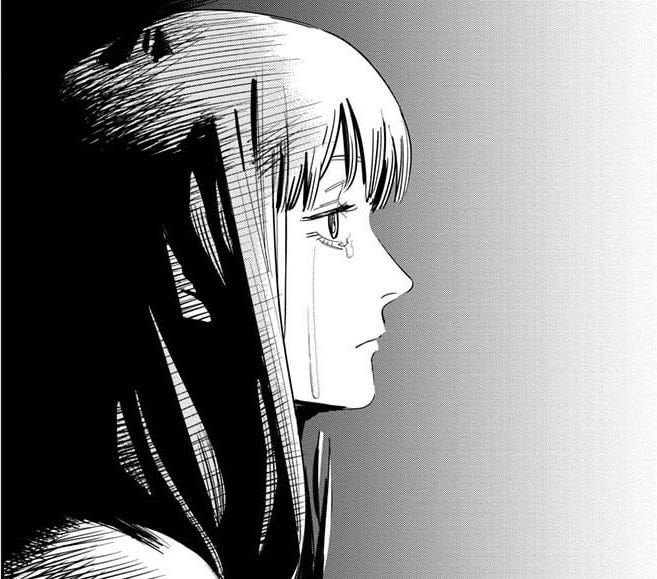Shit, I'm a snob now
on developing taste
Four years ago, I got into a debate with my roommate as he put up a Joan Miro artwork on our living room wall. I had no issue with the art, but I mentioned that I deliberately tried not to cultivate taste because I liked the fact that I was okay with everything. I drank boxed wine, I enjoyed restaurants with 3.8 stars on Google Maps, and I sure as hell would never have cultivated an interest in Joan Miro. He didn’t understand that at all.
He got the last laugh, because I’m a snob now. For the past year, I have gone to a wine tasting every week, where I enthusiastically tell the sommelier whether the Pinot was too grippy or that I prefer wines aged in stainless steel or that I could tell the grapes came from volcanic soil. Today I brought samples from Song Tea & Ceramics to my favorite Berkeley teahouse and shared a tasting with the staff where I described one of the teas as “honey without honey” and another as “if da hong pao went on a vacation to Nantou”.1 I went to a blind wine tasting a month ago, where they hid the bottles from us as we tasted them. My favorite wine turned out to be the most expensive bottle, and I couldn’t stand the wine from the cheapest bottle. I can still generally enjoy a bottom shelf wine or a Twinings teabag, but for better or worse, I can tell the difference now.
What changed? I have a precise answer to that. Last year, I read this psychoactive paragraph from Ava:
A large percentage of people’s problems in work, love and life are due to some combination of vagueness and passivity. You don’t know what you want to spend your time on; you don’t know what kind of person you really get along with; you don’t know what kind of clothing looks good to you; you don’t know what you value in a city; you don’t know how to spend a Saturday night. And even if you do know, you might not know how to find it. If you can articulate more to yourself, you can get more specific, and start looking for it.
Reading this paragraph was the first time I understood why I might want to discriminate between things I like and things I don’t. Of course, I had preferences before this. I liked some movies and disliked others. Some books would get me telling my life story in a Goodreads review, while others I couldn’t even finish. But I viewed these preferences as inevitable byproducts of life as a sentient being, not as an aspect of me that I should try to cultivate. This was the point of view I argued to my roommate.
The reason I had this perspective was that taste is really about cultivating dislike. Of course, you could start off disliking every version of an experience, in which case taste could help you find the specific versions of that experience that you would like. But that wasn’t the position I found myself in. Instead, I tended to like most versions of an experience. So developing taste required that I take some experience I enjoyed in the past, and rule that I now didn’t like it, because it compared poorly to something else I liked better. If I liked boxed wine and Premier Cru burgundy in an undifferentiated way before, I now had to take the stance that these were different experiences, and ask myself which of them I preferred. (I didn’t have to prefer the latter, but let’s be honest.) I didn’t like the idea of cultivating dislikes. It seemed certain to make my life worse.
And in the ways I expected, it has! I’m much more demanding about what I like now. I’m now less likely to duck into a random movie at the local theater (and the last time I did, it was garbage). Just as I expected, this has reduced my surface area for experiences that I might have otherwise enjoyed.
But it has also made me into a more specific person. In his exit interview, Obama talks about the narrowing of his ambitions as he grew older:
I actually think, when you’re young, ambitions are somewhat common—you want to prove yourself. It may grow out of different life experiences. You may want to prove that you are worthy of the admiration of the demanding father. You may want to prove that you are worthy of the love of an absent father. You may want to prove that you’re worthy of other kids or neighbors who were wealthier than you and teased you. You may want to prove that you’re worthy of high expectations. But I do think that there is a youthful ambition that very much has to do with making your mark in the world. And I think that cuts across the experiences of a lot of people who end up achieving something significant in their field. I think, as you get older, that’s when your ambitions become “peculiar” … because I think that at a certain stage those early ambitions burn away, partly because you achieve something, you get something done, you get some notoriety. And then the particularities of who you are and what your deepest commitments are begin expressing themselves. You’re not just chasing the idea of “me” being important, but you, rather, are chasing a particular passion.
As you grow older, you get life experiences that etch some unique goals onto you. Without those goals, you are Peter Pan, endlessly chasing a youth in which you never have to confront your individuality.
da hong pao is a Chinese oolong tea, Nantou is a province of Taiwan.


I love love joan miro :) Please keep up with this. I enjoy reading them very much.